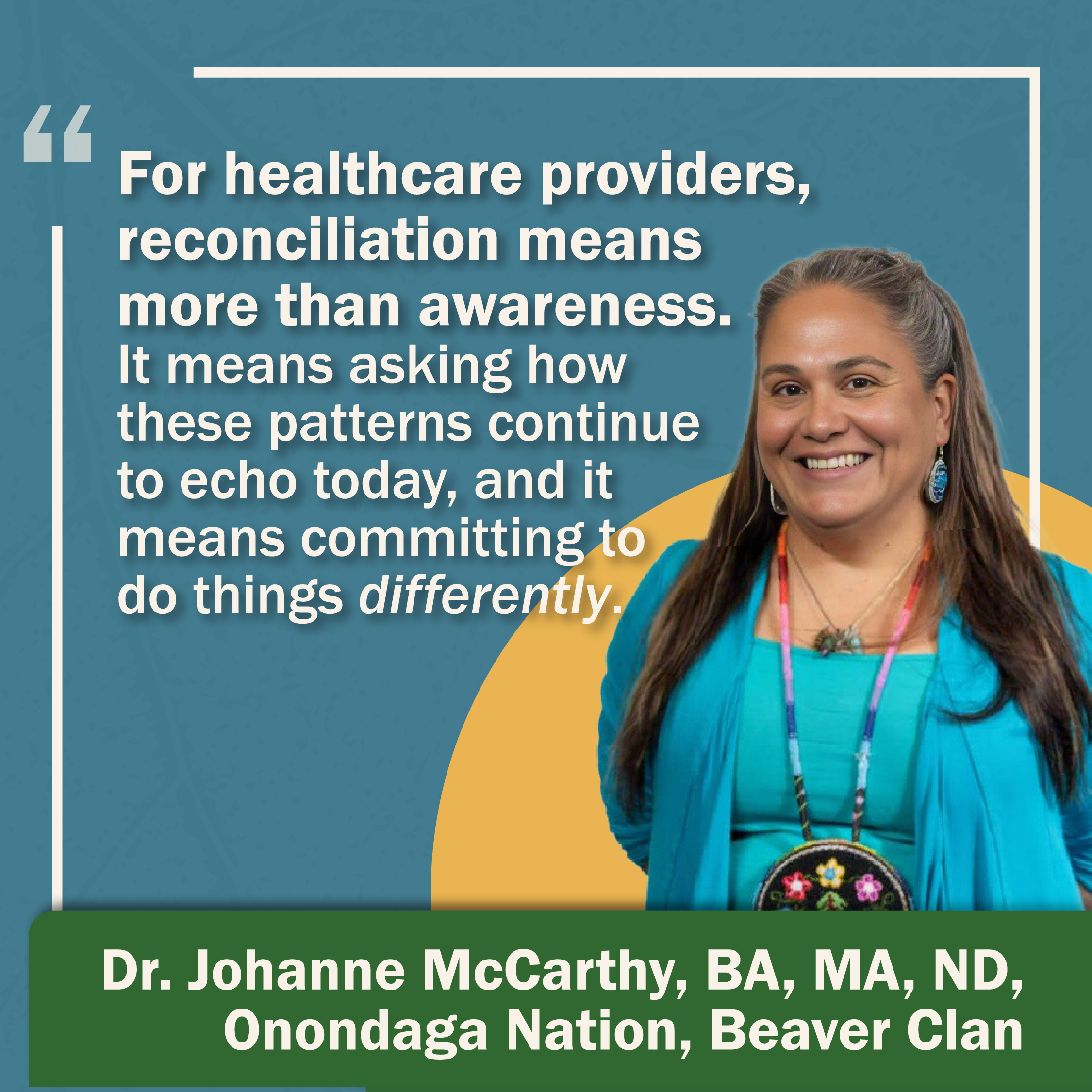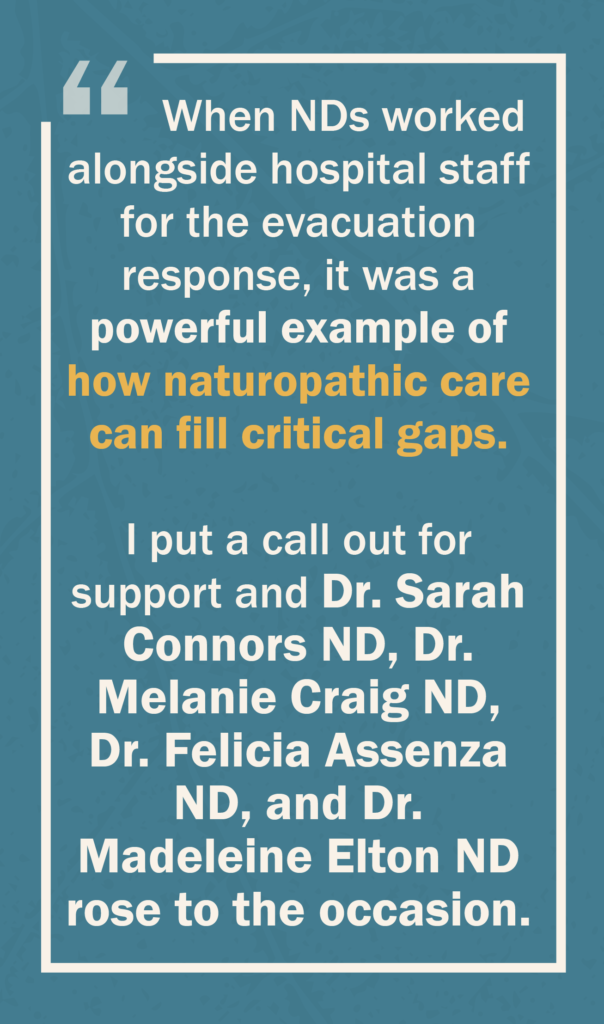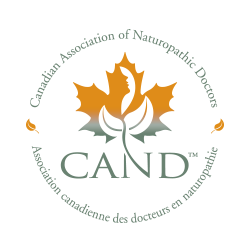29 Sep Two-Eyed Healing: Reconciliation for Indigenous and Naturopathic Inclusion in Healthcare
An Interview with Dr. Johanne McCarthy, BA, MA, ND, Onondaga Nation, Beaver Clan
 The National Day for Truth and Reconciliation is a time when people are called to pause and reflect on the legacy of residential schools- how they came to be, the systems that enforced them, and the lasting intergenerational impacts they continue to perpetuate. For healthcare providers, this reflection is not only about history, but also about responsibility: how do we do the right thing today to advance justice, dignity, and healing?
The National Day for Truth and Reconciliation is a time when people are called to pause and reflect on the legacy of residential schools- how they came to be, the systems that enforced them, and the lasting intergenerational impacts they continue to perpetuate. For healthcare providers, this reflection is not only about history, but also about responsibility: how do we do the right thing today to advance justice, dignity, and healing?
The Canadian Association of Naturopathic Doctors spoke with Dr. Johanne McCarthy ND, the Director and Lead of Indigenous Health at St. Joseph’s Healthcare Hamilton, to explore what reconciliation means within healthcare and how practitioners and Naturopathic leadership can approach their roles with honesty, humility, and a commitment to justice in the care they provide.
CAND: The National Day for Truth and Reconciliation is a time of reflection, about the legacy of residential schools, how they came to be, and the government-enforced systems that sought to erase Indigenous identities, languages, and ways of life. It is also a time to ask how we, in our professions, can contribute to justice and relationship repair. From your perspective, what is most important for healthcare providers to understand about reconciliation?
Dr. Joh: Reconciliation begins with an honest understanding of the trauma created by colonization. Residential schools and related government policies were deliberate attempts to dismantle Indigenous families, communities, and ways of life. They severed us from our languages, cultures, and healing practices, leaving intergenerational impacts that remain deeply felt.
In healthcare, those impacts are compounded by systemic barriers. Our medicines and ceremonies were outlawed. Our healers were persecuted. And within that context, we now see elements of our traditions taken up and appropriated, often without respect or care to support building relationships. Policies and practices continue to strip us, and block access to the very systems that had kept our people healthy for generations.
For healthcare providers, reconciliation means more than awareness. It means asking how these patterns continue to echo today, and it means committing to do things differently. It’s about moving from extractive approaches that attempt to mine our Traditional Knowledge, towards relational ones- where Indigenous Peoples and perspectives are honoured and included, not silenced or borrowed without context, and where dignity and compassion guide care.
CAND: How should the Naturopathic Profession be thinking about reconciliation in the context of healthcare today?
Dr. Joh: As naturopathic doctors, we need to recognize that our profession is still young and evolving within Canada. The way we choose to grow matters. If we allow regulation to become overly restrictive, we risk narrowing our access and excluding practices that are grounded in cultural safety and holistic principles. Reconciliation calls us to think differently- it’s not about us protecting ‘turf’ but about expanding access to care in ways that are respectful, inclusive, and collaborative.
This shift is already happening in mainstream medicine and is often described through the concept of Two-Eyed Seeing. It’s more than a framework; it’s a practice and a mindset that encourages us to hold the strengths of both Indigenous and Western knowledge systems together, without one trying to dominate the other. It invites us to approach healthcare with humility, curiosity, and a commitment to relational learning.
For our profession, Two-Eyed Seeing means honouring the roots of our own knowledge, acknowledging the original knowledge holders, and creating spaces that welcome diversity and eclectic practice rather than shutting it down. Reconciliation for naturopathic medicine means moving from extraction and exploitation- whether of nature, or practitioners, or of healing traditions- toward reciprocity, inclusion, and responsive relationships.
We have an opportunity now to shape our profession authentically, to embrace its biodiverse strengths and integrate insights gained from the broader healthcare landscape. By doing so, we can ensure that naturopathic medicine grows with integrity, resilience, and a genuine commitment to reconciliation, building a model of care that is inclusive, adaptable, and rooted in respect for both people and knowledge systems.

CAND: You mentioned the shift already happening in mainstream medicine. How do you see Reconciliation frameworks being implemented and how do you see naturopathic medicine aligning with this movement?
Dr. Joh: At the hospital where I work, reconciliation is not a checkbox- it is integrated into the web of practice. St. Joe’s has a holistic focus, prioritizing not just physical, but mental, emotional and spiritual care. We are renowned for our Mental health and addictions programs, specializing in renal, digestive and respiratory health which are pillars necessary for vitality. We also specialize in maternal and birthing care, foundations to intergenerational health. Our outreach includes care for youth, people experiencing homelessness, mental health supports in remote areas such as Nunavut, and rapid response care for evacuees displaced by the recent climate emergencies. When NDs worked alongside hospital staff for the evacuation response, it was a powerful example of how naturopathic care can fill critical gaps. I put a call out for support and Dr. Sarah Connors ND, Dr. Melanie Craig ND, Dr. Felicia Assenza ND, and Dr. Madeleine Elton ND rose to the occasion. Providing collaborative care for mostly displaced First Nations Peoples, they modelled just how well positioned our profession is for meeting people on a very human level where they are at! We are inherently interculturally considerate, gathering extensive patient histories and assessing people based on their wholistic contexts and circumstances- we continuously uphold and advocate for patient and community centered care. This level of inclusion shows how reconciliation can transform care on the ground.
CAND: Looking ahead, what do you believe reconciliation in naturopathic medicine will truly require?
Dr. Joh: Reconciliation in naturopathic medicine will require us to be vigilant about how our profession evolves. We cannot repeat the patterns of exclusion, appropriation, and control that have caused so much harm in healthcare. If we create systems that limit access to nature cure or restrict who can practice in ways that silence diversity, then we are mirroring the very structures we should be opposing.
True reconciliation asks us to move beyond self-interest and toward collective healing. It means choosing reciprocity over extraction, relationship over control, and inclusivity over privilege. Our responsibility as naturopathic doctors are not just to care for those who can afford our services, but to advocate for access, dignity, and justice in the systems we are part of.
CAND: And finally, what does “Two-Eyed Healing” mean to you in this context?
Dr. Joh: Two-Eyed Healing is about more than bringing together different knowledge systems, it’s about healing relationships. It is about holding Indigenous and Western ways of knowing side by side, not to compete or dominate, but to strengthen each other for the sake of patients and communities.
For naturopathic medicine, this means resisting the urge to conform to narrow models of power and instead embracing the diverse, holistic, and relational roots of our profession. It means remembering that reconciliation is not symbolic, it is action. Action to ensure that Indigenous medicines are not marginalized, appropriated, or restricted; action to expand access to healing where it is needed most; action to stand against systems of oppression, even if they may not directly affect us.
If we can commit to that, then naturopathic medicine has the chance to grow into a model of healthcare that is not only effective but also rooted in equity and responsibility- a profession that helps heal people, relationships, and the systems that have harmed them. That is Two-Eyed Healing.
